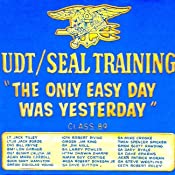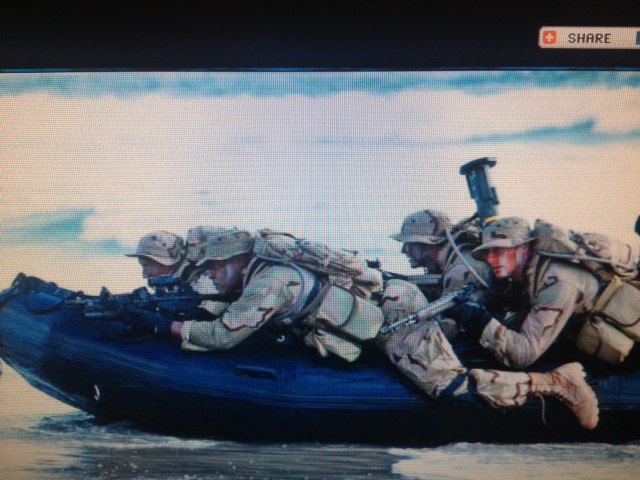
Navy SEALs are among the world’s most elite and respected special operations forces. But what is a Navy SEAL exactly? These highly trained warriors are more than just tough guys with guns. They’re expert tacticians, endurance athletes, and covert operatives all in one. What is a Navy SEAL’s true purpose? What are their capabilities? Let’s learn about Naval Special Warfare to uncover the reality behind this military branch.
The acronym SEAL stands for Sea, Air, and Land, reflecting these special operators’ versatile environments. Established in 1962 by President John F. Kennedy, the SEALs evolved from underwater demolition teams of World War II. Today, they’re the U.S. Navy’s primary special operations force, carrying out the military’s most challenging and sensitive missions.
Becoming a SEAL is not easy. The training is notoriously brutal, designed to push candidates to their mental and physical limits. Out of every 1,000 candidates who enter SEAL training, only 200-250 complete the program. This extreme selectivity ensures that only the most elite warriors earn the right to wear the SEAL Trident.
What Are The Character Traits Of A Navy SEAL?
The Rigorous Path to Becoming a Navy SEAL
The journey to becoming a Navy SEAL is long and arduous. It starts with a grueling 24-week initial training course known as Basic Underwater Demolition/SEAL (BUD/S) training. This is where the infamous “Hell Week” occurs, five and a half days of constant physical and mental challenges with only about 4 hours of sleep total.
BUD/S is just the beginning. After that comes:
- Parachute jump school
- SEAL Qualification Training (SQT)
- 18 months of pre-deployment training
It takes over a year of non-stop training before a candidate can be assigned to a SEAL team. The learning never stops. SEALs constantly train to hone their skills throughout their careers.
The Unique Capabilities of Navy SEALs
What makes Navy SEALs so special? Their versatility and adaptability set them apart from other special forces. SEALs are trained to operate in any environment, from the depths of the ocean to high-altitude mountains and everything in between.
Some of their key capabilities include:
- Underwater operations and combat diving
- Airborne insertions via parachute or fast-roping from helicopters
- Land warfare and small unit tactics
- Reconnaissance and intelligence gathering
- Counterterrorism operations
- Hostage rescue
- Clandestine missions
This diverse skillset allows SEALs to take on a wide range of missions, from direct-action raids to more covert operations. They can strike from the sea, disappear into the shadows, or blend in with civilian populations.
The Physical and Mental Demands
The physical standards required to become and remain a Navy SEAL are incredibly high. The minimum physical screening test requirements give you an idea of the baseline fitness level:
| Exercise | Minimum | Optimum |
|---|---|---|
| 500-yard swim | 12:30 | 8:00 |
| Push-ups in 2 minutes | 50 | 100 |
| Sit-ups in 2 minutes | 50 | 100 |
| Pull-ups (no time limit) | 10 | 20 |
| 1.5-mile run | 10:30 | 9:00 |
Physical fitness is only part of the equation. The mental toughness required to be a SEAL is equally important. They must be able to perform under extreme stress, make split-second decisions, and stay calm in life-or-death situations.
The SEAL Ethos: More Than Just a Job
What is a Navy SEAL beyond their skills and capabilities? It’s also about adhering to a strict code of conduct and values. The SEAL Ethos emphasizes qualities like:
- Loyalty to country and team
- Serving with honor on and off the battlefield
- Uncompromising integrity
- Taking charge and leading by example
- Never quitting
This ethos shapes every aspect of a SEAL’s life and career. It’s not just about being physically tough. It’s about embodying these values in everything they do. A Navy SEAL is someone who goes above and beyond the call of duty, demonstrating exceptional bravery and resilience.
Real-World Impact: SEALs in Action
Navy SEALs have been involved in some of the most high-profile military operations in recent history. While many of their missions remain classified, some notable public examples include:
- The raid that killed Osama bin Laden in 2011
- The rescue of Captain Phillips from Somali pirates in 2009
- Numerous counterterrorism operations in Iraq, Afghanistan, and other global hotspots
These missions showcase the versatility and effectiveness of SEAL teams in tackling complex, high-stakes situations. Their ability to operate effectively in challenging environments, from maritime to urban settings, makes them a vital asset to the United States.
Life After the Teams
What is a Navy SEAL’s career path like? While some SEALs serve for 20+ years, many transition to civilian life after military service. The skills and experiences gained as a SEAL can translate well to various careers, including:
- Law enforcement
- Private security
- Business leadership
- Entrepreneurship
Many former SEALs also pursue education opportunities. Some opportunities include programs like the Naval Postgraduate School, leveraging their military experience into advanced degrees and new career paths. The Navy Reserve offers another pathway for former SEALs to continue serving their country while pursuing civilian careers. This allows them to maintain their skills and contribute to national defense part-time.
The Future of Naval Special Warfare
As global threats evolve, so too must the capabilities of Navy SEALs. The future of Naval Special Warfare is likely to include:
- Increased focus on cyber and information warfare
- Integration of advanced technologies like AI and robotics
- Expanded roles in unconventional and hybrid warfare scenarios
SEALs must adapt to these new challenges while maintaining their core skills and values. This includes collaborating with other Special Operations Forces like Army Delta Force, Air Force Pararescue, and Marine Force Recon to address evolving threats.

